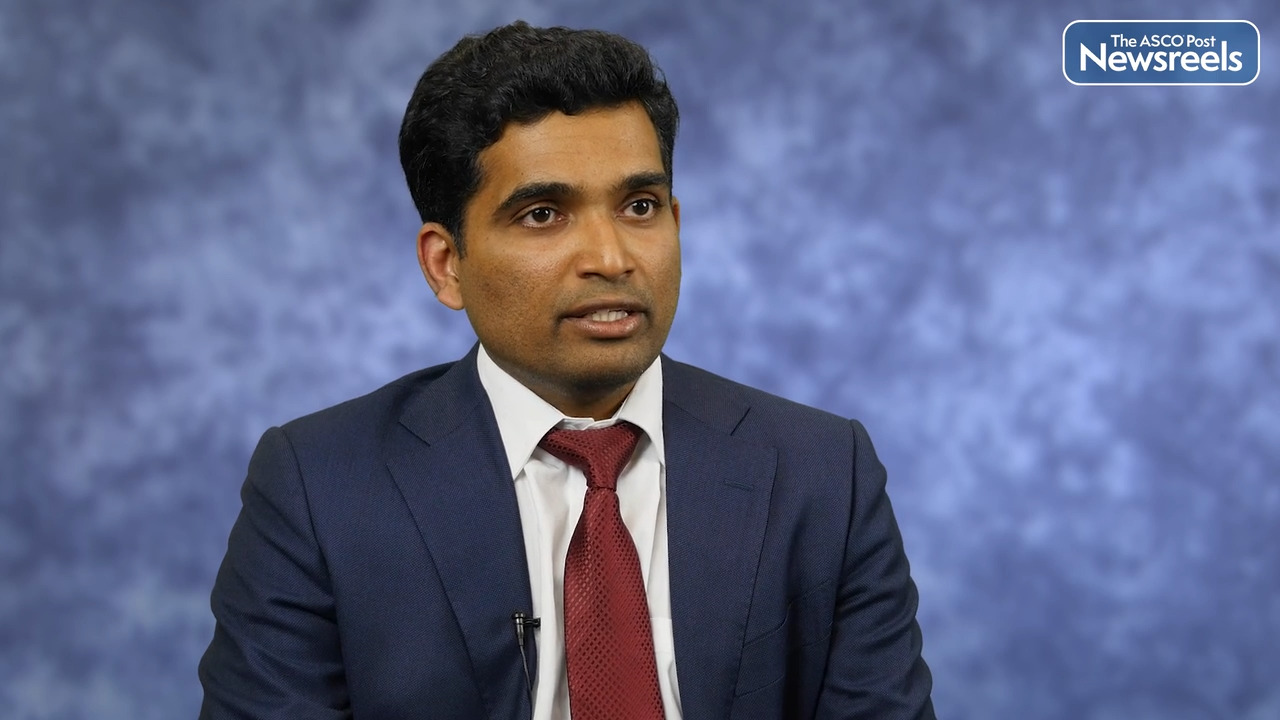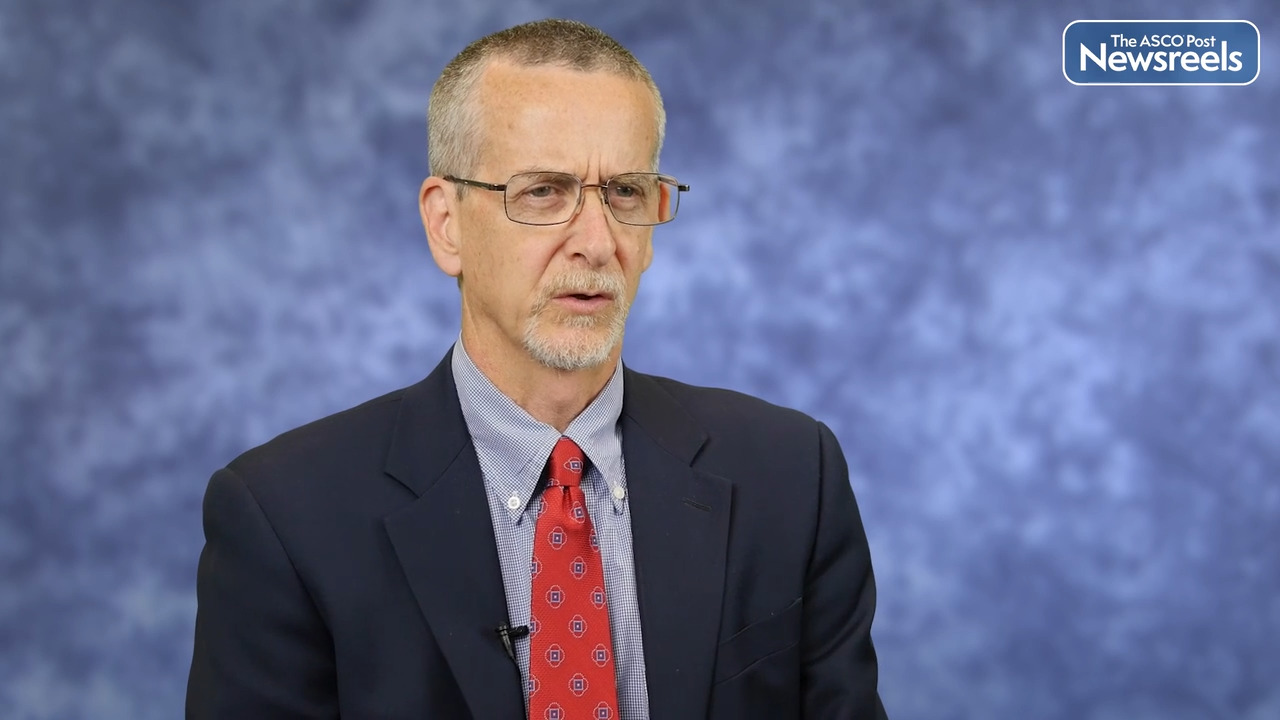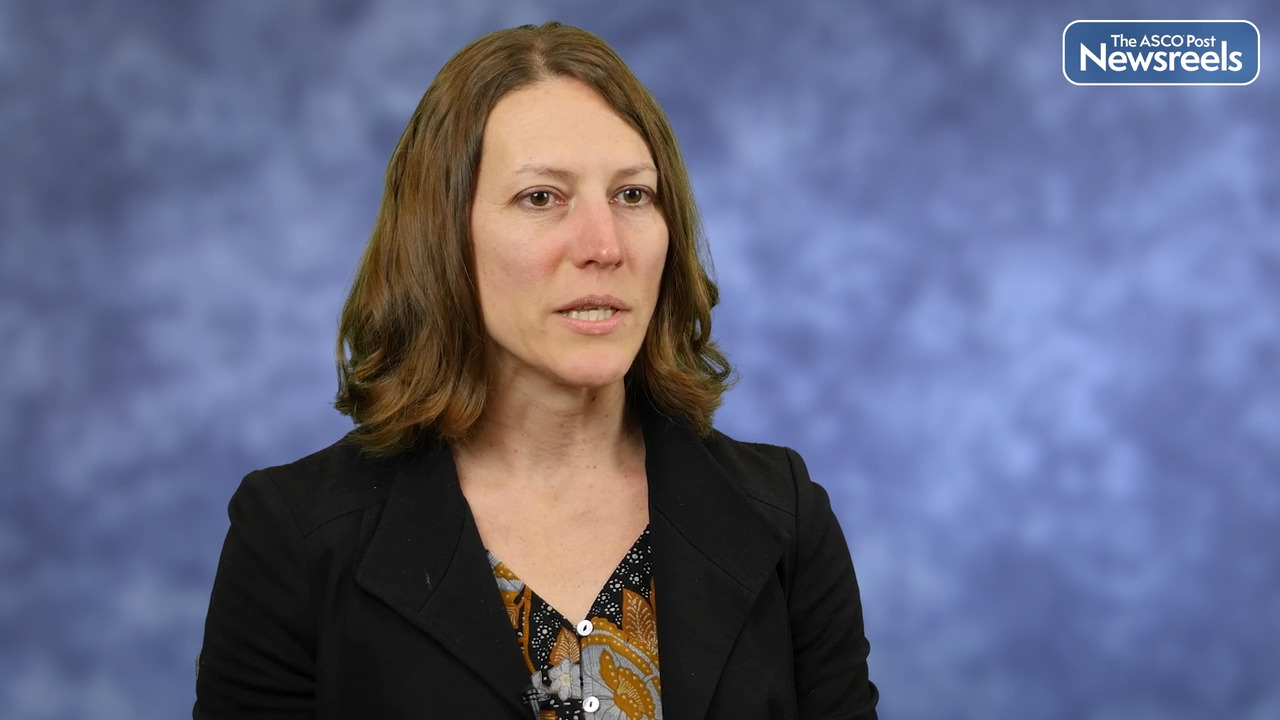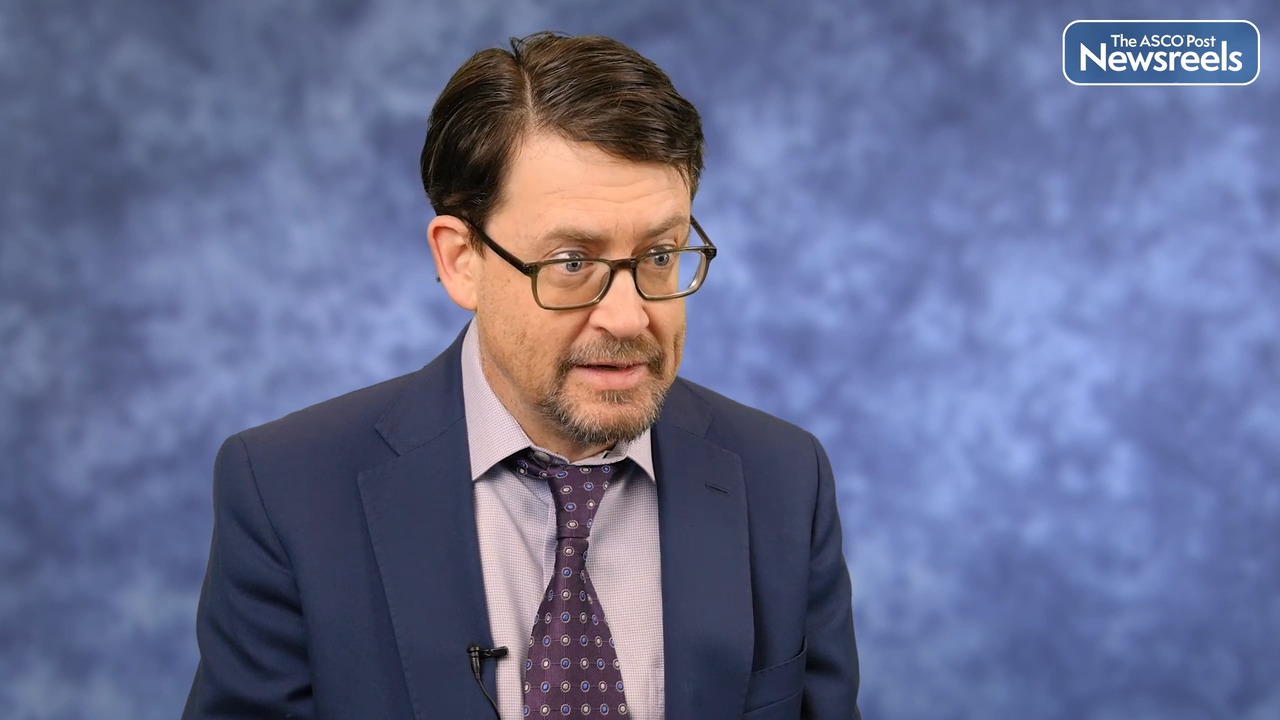Arlene O. Siefker-Radtke, MD, on Urothelial Cancer: Emerging Therapies
NCCN 2023 Annual Conference
Arlene O. Siefker-Radtke, MD, of The University of Texas MD Anderson Cancer Center, provides an overview of the emerging treatments for urothelial cancer, including several new agents in the antibody-drug conjugate and tyrosine kinase inhibitor classes. She describes the clinical activity and toxicities of enfortumab vedotin-ejfv, erdafitinib, and sacituzumab govitecan-hziy.
Transcript
Disclaimer: This video transcript has not been proofread or edited and may contain errors.
Arlene O. Siefer-Radtke:
We are entering a new era in the treatment of metastatic urothelial carcinoma. There are now multiple targeted strategies that more directly target tumors that we are utilizing. And what we are seeing with these novel agents that have recently received FDA approval, we're beginning to see an extension of life and improvement in the toxicity profile, or the treatment of metastatic urothelial carcinoma.
One of these important agents is the antibody drug conjugate class of drugs. Starting within Enfortumab vedotin, which is an antibody drug conjugate targeting Nectin-4 expression on urothelial tumors. Because of this targeting, we get treatment more directly to the tumor, which improves the toxicity profile as compared to standard chemotherapy. Resulting in response rates of around 40% and median survival around one year in patients who've had prior treatment for their stage four unresectable urothelial tumors.
We've also seen FDA approval of Erdafitinib and FGF targeted therapy. Erdafitinib targets FGFR3 alterations that are found in about 15 to 20% of metastatic urothelial tumors. This is an oral medication, the first oral medication approved for urothelial cancer. And in patients who've had prior treatment, we've seen evidence of responses within, again, a 40% objective response rate, and median overall survival around one year for previously treated metastatic urothelial cancer patients.
We also have a third agent, another targeted agent. Again, an antibody drug conjugate with Sacituzumab govitecan, which targets Trop-2 expression that's found on over 80% of urothelial tumors. This agent has activity in about 25% of patients experiencing an objective response to therapy, and a median survival a little less than a year.
So with all of these novel agents, we are starting to target urothelial cancers more effectively and improve the toxicity profile. But our work is not over. With these agents, we're now combining them with immune checkpoint inhibitors, and there's been evidence of early clinical activity, especially within Enfortumab vedotin combined with pembrolizumab showing a nearly 70% objective response rate.
And with Erdafitinib combined with Cetrelimab, another PD-1 inhibitor, where we are seeing objective responses, again, close to 70% of patients. In fact, these agents are becoming so effective that just yesterday we received word of FDA accelerated approval for Enfortumab vedotin when combined with pembrolizumab in patients with cisplatin ineligible urothelial cancer.
So I hope you will take time to review the slides at the NCCN meeting. We talked a lot about toxicity and how to manage the side effects of these therapies, and it really truly is an exciting time to be treating urothelial cancer patients. As we're seeing improved responses and improved toxicity profile, and we're beginning to see that extension of life where patients are now living longer, providing hope to our urothelial cancer patients.
The ASCO Post Staff
Midhun Malla, MD, of the West Virginia University Cancer Institute, discusses the molecular landscape of metastatic colorectal cancer and the development and approvals of targeted treatments. Dr. Malla also details the range of HER2-targeted therapeutic options and the approval of trastuzumab and tucatinib for HER2-amplified disease in the second-line setting or after. In addition, he discusses emerging therapies in refractory metastatic colorectal cancers followed by circulating tumor DNA–guided management of oligometastatic colorectal cancers using immune checkpoint inhibitors.
Natalie Moryl, MD, of Memorial Sloan Kettering Cancer Center, discusses severe cancer pain, a medical emergency that should be addressed with immediate intervention. The treatment plan, Dr. Moryl says, should include making a pain diagnosis; addressing reversible causes of pain such as spinal cord compression, fracture, or obstruction; selecting, titrating, and rotating opioids and co-analgesics; and routine screening for risks of opioid use disorder and mental health comorbidities.
The ASCO Post Staff
Louis B. Nabors, MD, of the O’Neal Comprehensive Cancer Center at UAB, discusses the three subtypes of adult gliomas classified by the World Health Organization, treatments influenced by IDH mutation status, the roles of radiotherapy and chemotherapy, molecular testing, and pseudoprogression and RANO (response assessment in neuro-oncology) criteria.
The ASCO Post Staff
Deborah M. Stephens, DO, of the Huntsman Cancer Institute at the University of Utah, discusses NCCN’s updates to treatment recommendations for patients with chronic lymphocytic leukemia/small lymphocytic lymphoma. Dr. Stephens details the key factors in selecting front-line and subsequent therapies, including IGHV status, del(17p)/TP53 mutation status, age, comorbidities, and resistance mutations.
The ASCO Post Staff
Michael K. Gibson, MD, PhD, of Vanderbilt-Ingram Cancer Center, discusses the importance of developing additional treatment strategies for patients with advanced or metastatic esophageal squamous cell carcinoma and describes the role of immune checkpoint inhibitors. Dr. Gibson also reviews the available evidence on the use of nivolumab in this patient population.





